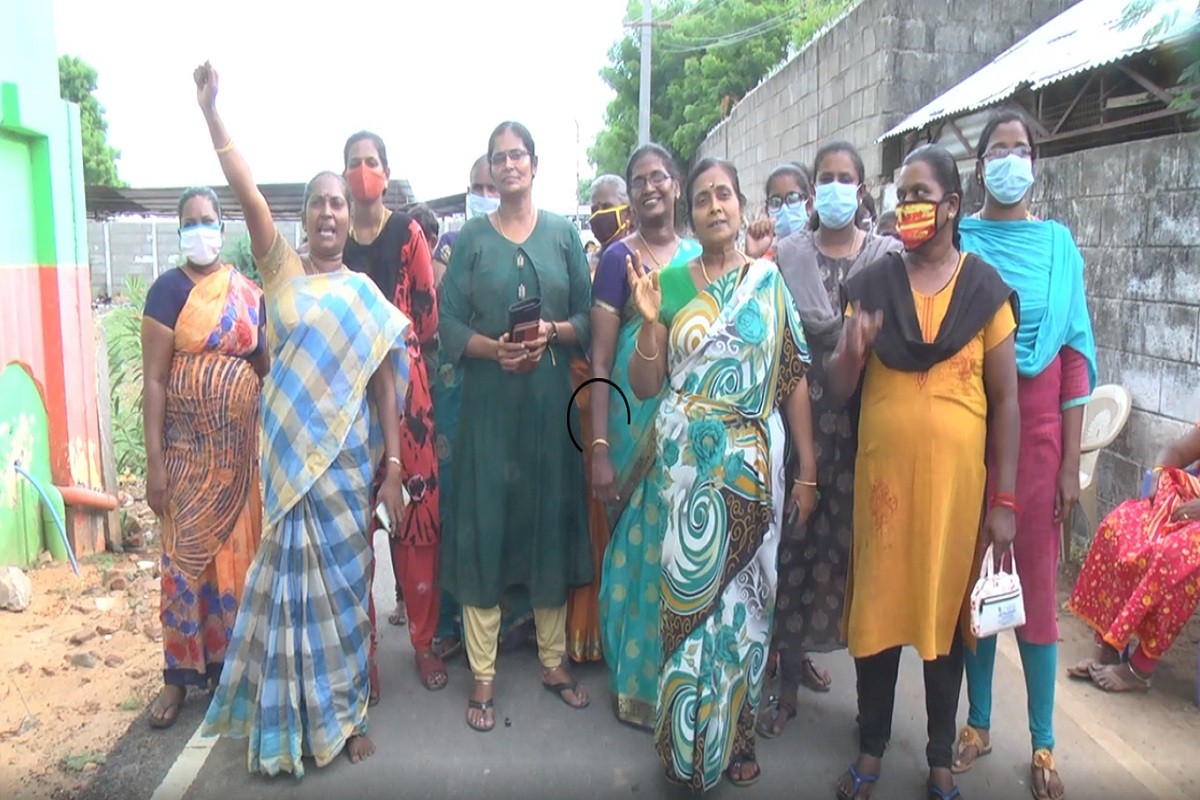
Thoothukudi, Once a leading contributor to copper production in India, Sterlite copper's recent announcement to sell off the plant has left everyone stunned, particularly the people whose livelihoods were severely hit by the shutdown of the Thoothukudi plant in 2018.
The company's plan to sell the plant and exit Thoothukudi has led to massive protests in over 14 villages in the district with protesters demanding the reopening of the plant and urging the Vedanta's founder to reconsider his decisions.
The pro-Sterlite protesters from Pandarampatti, Sankaraperi, Meelavittan, Madathur, Kummareddiarpuram, Naduvakurichi, Rajavinkovil, Puurpandiapuram, Sillanatham, Saminatham and Ayyanadapu villages took to the street raising slogans in favour of the copper smelting plant after Sterlite Copper invited an Expression of Interest (EOI) from potential buyers for its contentious Thoothukudi unit. Several petitions have been submitted to the Chief Ministers and state offices requesting the reopening of the plant, which was a big employment generator in the region, before it was closed on charges of environmental pollution.
The 400,000 Metric Tonnes Per Annum (MTPA) Copper Smelter facilities used to directly employ around 5,000 people. Although most of the permanent employees were absorbed by Sterlite and other group companies, it is the temporary employees and third-party vendors who have struggled to make their ends meet. Going by the numbers, around one-lakh families lost their livelihood after the Sterlite copper went under lock and key.
Now with the EOI advertisement, many local communities have come out in support of reopening the unit. The protesters argue that the copper smelting plant was a chief source of employment for the local community, who now have to travel far from home in the search of a job.
"The copper plant was the prime source of income for our family. After its closure, we have been struggling to find a decent job in the local area. We have to travel far in search of work. Even then it is difficult for us to make ends meet as the cost of surviving in big cities is high and we are paid bare minimum wages," said one of the protesters.
One of the local groups leading the protest claimed that the anti-Sterlite protest that led to the closure of the plant four years ago was orchestrated by outside elements who were paid to spread false rumours about the company and malign its image.
"The local community has suffered a huge loss due to the shutdown of the Thoothukudi copper plant. Lakhs of people lost their jobs and had to move to cities, far from their homes in search of work. It is all because of the ruckus created by some outsiders, who were paid to spread the rumours against the company that led to its shutdown. We now request the company and government to reopen the plant for the welfare of the local community," said one of the speakers of the local groups.
The closure of Sterlite copper has not only impacted several employees but has also pushed India backward in the race for copper manufacturing.
With a yearly capacity of producing 4 lakh tonnes of copper, the Vedanta-owned Thoothukudi plant contributed to 40 per cent of the country's demand for refined copper. Post closure of this unit, India's copper export plunged by 90 per cent and it became an importer of copper for the first time in 18 years. The country is now importing 2 billion USD worth of copper and bearing an export loss of over 1.5 billion USD, resulting in an overall loss of 20,000 crores to the economy.
Not only this but due to the widespread application of copper and its by-product in diverse industries, the shutdown of the plant has crippled several other small and large-scale industries, creating a huge gap between demand and supply of the commodity. Sterlite was the only domestic supplier of phosphoric acid in the country, the raw material required for fertilisers. Besides, the Thoothukudi plant was also the largest supplier of sulphuric acid in the state, a chemical used in detergent and chemical industries. Prices of both the chemicals have increased after the closure of the plant.


.jpeg)

